Investment Books Review
While it is important to invest early, it is more important to invest wisely. In this books review, we present five classic investing books. They can provide indispensable business and finance insights for independent investors - and are highly recommended for new and young investors.
Ride The Bull Short The Bear - A Practical Guide to Win in Stock Market and Investment
Stocks are one of the best investment for your hard-earned money as the returns easily beat the returns from other types of investment. But the stock market is tricky - you have to know what and how and when to buy and sell at the right time to maximize your returns. When you acquire the knowledge, then the opportunity and potential to increase your wealth is exceptionally high compared to other investment choices.
This is why this book is written. So that you will learn to invest based on facts and not on fantasies or hearsay. This book is the result of the author's many years of experience and observation throughout his 26 years in the stockbroking industry.
The book presents a comprehensive and systematic approach to stock invest known as Bull Traders Strategy (BTS), using a combination of fundamental analysis criteria for picking stocks and the application of technical analysis tools to set entry and exit criteria to manage the stocks in the portfolio.
A Gift to My Children: A Father's Lessons for Life and Investing
Legendary investor Rogers co-founded the Quantum Fund with George Soros in 1970, retired at the age of 37 in 1980, and spent a number of years traveling through China and six continents by motorcycle.
He recently fathered two daughters in his sixties and wrote this small memoir to share with them some of the insights that he has garnered from his experiences. He advises to make your own decisions in life rather than listening to others, to figure out what you love to do and focus on that rather than what is expected of you, and to have a dream and to live your dream.
In the area of finances, he says to save and invest early on rather than spending frivolously, so that you will be able to afford the important things in life later, and to do your own research, draw your own conclusions, and look to the future - not the past - for great ideas. These and other nuggets of wisdom from this self-made man are worth reading several times over.
-- David Siegfried
A Bull in China: Investing Profitably in the World's Greatest Market
If the twentieth century was the American century, then the twenty-first century belongs to China. According to the one and only Jim Rogers, who's been tracking the Chinese economy since he first went to China in 1984, any investor can get in on the ground floor of "the greatest economic boom since England's Industrial Revolution." But the time to act is now.
In A Bull in China, you'll learn which industries offer the newest and best opportunities, from power, energy, and agriculture to tourism, water, and infrastructure. Rogers demystifies the state policies that are driving earnings and innovation, takes the intimidation factor out of the A-shares, B-shares, and ADRs of Chinese offerings, and profiles "Red Chip" companies, such as Yantai Changyu, China's largest winemaker, which sells a "Healthy Liquor" line mixed with herbal medicines. Plus, if you want to export something to China yourself - or even buy land there - Rogers tells you the steps you need to take.
No other book - and no other author - can better help you benefit from the new Chinese revolution. Jim Rogers shows you how to make the "amazing energy, potential, and entrepreneurial spirit of a billion people" work for you.
The Essays of Warren Buffett: Lessons for Corporate America
The definitive work concerning Warren Buffett and intelligent investment philosophy, this is a collection of Buffett's letters to the shareholders of Berkshire Hathaway written over the past few decades that together furnish an enormously valuable informal education. The letters distill in plain words all the basic principles of sound business practices. They are arranged and introduced by a leading apostle of the 'value' school and noted scholar, Lawrence Cunningham.
Here in one place are the priceless pearls of business and investment wisdom, woven into a delightful narrative on the major topics concerning both managers and investors. These timeless lessons are useful to members of a wide range of professions, including law, accounting, finance and management, and provide rich teaching materials for courses in those fields.
The Intelligent Investor: The Definitive Book on Value Investing. A Book of Practical Counsel
Among the library of investment books promising no-fail strategies for riches, Benjamin Graham's classic, The Intelligent Investor, offers no guarantees or gimmicks but overflows with the wisdom at the core of all good portfolio management.
The hallmark of Graham's philosophy is not profit maximization but loss minimization. In this respect, The Intelligent Investor is a book for true investors, not speculators or day traders. He provides, "in a form suitable for the laymen, guidance in adoption and execution of an investment policy".
This policy is inherently for the longer term and requires a commitment of effort. Where the speculator follows market trends, the investor uses discipline, research, and his analytical ability to make unpopular but sound investments in bargains relative to current asset value. Graham coaches the investor to develop a rational plan for buying stocks and bonds, and he argues that this plan must be a bulwark against emotional behavior that will always be tempting during abrupt bull and bear markets.
One Up On Wall Street: How To Use What You Already Know To Make Money In The Market
Lynch is the master stock picker who led Magellan (until May 1990) to its position as America's biggest mutual fund. In One Up on Wall Street (Simon & Schuster, 1989), also written with Rothchild, he described his winning methods. Here, he provides a few more elaborations and 21 "Peter's principles."
Some are overly clever, e.g., being first in line is a great idea except on the edge of a cliff. Lynch takes three chapters to explain how he "done it good" at Magellan. One valuable chapter details methods for picking a mutual fund from the thousands available, but most of the book is devoted to demonstrating his research into picking the 21 stocks he recommended in the January 1992 Barron's roundtable.
Still, since the average investor will not get to talk to the CEO or visit the company in person, maybe we should all just buy Lynch's recommendations each year. A tossup.
Discussions
The Intelligent Investor ... my investment Bible!!! When the Market is against me, I always go back to this book. If I am with Benjamin, I know I am right. I stay put and let the market roar past. If not I get out! So far so good.
2012-06-24 22:12
i am not a technical analysis fondie, but its no harm to know how they (or rather the market) thinks in the short term:
As potential readers, investors or traders alike, must have a very limited time to read these suggestions, I will keep my recommendations short.
Firstly, I understand that there are many skeptics about technical analysis. Most people who read Seeking Alpha are probably of the fundamental type, and hope to seek the chance to capture "CAPM Alpha" or "Multi-Factor Model Alpha" or "Jensen's Alpha" (they have differences in what they stand for). In any case, you believe in that fundamental analysis is the best way to understanding a company, and I agree. However, there are some problems against trading or investing by the sole use of fundamental analysis.
Sometimes you may find that the stock you are trading is a very different creature from the company that stands behind it, that you may be frustrated at the fact that even if the company releases a positive unexpected earning in the quarter, its stock just refuses to rise. Or the company's business is relatively stable, yet its stock price is amazingly volatile. All of these doubts may tell you that a stock is different from the company behind it. To trade or invest in stocks, our primary focus is to understand the stock, and then the understanding of the company may aid us later.
Have you ever thought about how would you realize a profit in your trade or investment? Let's say a new technology has been developed, and it can cure baldness. Instantly you will find this idea of tremendous value. However, it doesn't mean that this idea will help you immediately profit. We, as individuals, may profit only in one occasion: At first, the majority of the market has a different understanding of the technology/stock/company than we do; in the end, the market converges to our beliefs, and the price converges to our expectations. Therefore, the profit doesn't rely on your viewpoint being accurate, but rather, it relies on the procedure of market misinterpreting it at first, but later collectively realizing that you are right in your special viewpoint.
Such things may never happen, or it may be 10 years, 20 years or 30 years until the market finally confirms that you are right, or it may be 10 days or 10 months. In the former occasion, you will have your capital mired in such an investment, a piece of capital you may well wish to put in some other places, and to be put back in this specific stock only when the market shows a signal in its belief of your side of the story.
Thus, I believe in the use of all scientific methods in investing or trading stocks, and I believe a combination of fundamental and technical approach is a very good start. Also, changing market conditions, i.e. the development of new technology, may change the method you use. Maybe someday the market is so computerized and the software which employs the technical rules have made the current technical analysis futile in the future. That's perfectly possible. However, right now, I believe that the combination of both approaches is a good way to start.
Starting level (If you haven't had any technical analysis exposure yet):
First, read Technical Analysis of Stock Trends, 9th edition, by Robert Edwards and John Magee.
The book has an exceptionally well organized structure, namely two parts: first, recognizing price patterns, trends, support/resistances, i.e. the technical theory; second, trading tactics in each pattern and trend. The book is great in the sense that it's concise and elegant, both the writing style and the philosophy. It helps you to develop comprehensive idea about stock charts and trading tactics by just looking at the two most "fundamental" things on a chart: price and volume, which is, as a matter of fact, the basis for nearly every technical indicators you will learn in the future. It tells you what mindset to take on when starting to trade, how to protect your profit by avoiding riding on an "elevator" of price swings etc. through concrete examples and rules, instead of blurry words. To be short, it's a Bible accompanied with a multi-million paycheck, if you are able to read it, think about it, and trade by it in depth.
Then, read Technical Analysis of the Financial Markets, by John Murphy.
After reading the first book, you may feel you have comprehensive understanding of technical analysis in depth, and you are ready to trade. However, it's important to broaden your scope and know about all the new indicators other precursors develop with their years of valuable experience. This book by John Murphy, is such a book that helps you develop such a broadened scope that may prove to be crucial in your later trading.
2012-06-24 23:55
continue...
Other two candidates, as you may have heard of, are Technical Analysis: the Complete Resource for Financial Market Technicians, by Charles Kirkpatrick and Julie Dahlquist and Technical Analysis Explained by Martin Pring. These are truly wonderful books as well, yet with several minor flaws that result in my final recommendation of John Murphy's book. The first book doesn't cover certain topics in depth, and it's more of a welcome edition for people who haven't read Robert Edwards and John Magee.
The second book, which explains price actions with more coarse definitions and explanations, (in every price pattern, you want to have an idea about what's the possibility of an exception, 10% or 20%? or what's the extent of Minor Reaction, about 40% or 45% or more? while this book only gives you something like "it's rare" or "it might react quite a margin") is less refined than John Murphy's book, if I venture to say. Therefore, John Murphy's book might well be your second book.
Intermediate Level:
Now, it's time to delve in depth into the subfields of technical analysis, and I recommend one book for each subfield:
Point and Figure: The Definitive Guide to Point and Figure, by Jeremy du Plessis.
Japanese Candlestick: Japanese Candlestick Charting Techniques, by Steve Nison.
Technical Analysis' Investment Psychology: Investment Psychology Explained, by Martin Pring.
Another book, Technical Analysis for the Trading Professional, by Constance Brown is a good book to read after you have some experience in using technical analysis in trading and want to consult on some practical doubts developed during your trading.
Having said this much, I have a final suggestion. Don't buy too many books at once. Buy one book, read it through with sufficient time, and continually think over the questions and doubts you have, until you resolve them. Then, only then, you may proceed to another book. I really hope that my recommendations, of however useful degree to you, may help you in the build-up of financial wealth. And I sincerely wish that you may use that wealth wisely, to fulfill your dreams, to pursue your passions, or to build up beneficial projects for the society.
2012-06-24 23:56
From what I know, Peter Lynch has written 3 books. What is reviewed here is not 'One Up on Wall Street'. The reviewer got it wrong...
2012-07-13 17:18
Agree with KCLoh on "Technical Analysis: the Complete Resource for Financial Market Technicians, by Charles Kirkpatrick and Julie Dahlquist", I'm reading this now in fact and learning a lot. Learning curve is not too steep and reading and comprehension pretty good.
I've bought "Japanese Candlestick: Japanese Candlestick Charting Techniques, by Steve Nison." also a fantastic read (from the first 2 chapters), but I'm putting this aside till I finish the above-mentioned book.
For fun and games, I've bought Reminiscence of a Stock Operator by Edwin Lefevre, a great book thought to be an autobiography of the late great Jesse Livermore. Fantastic read. If you can't get enough of Jesse Livermore, read his "How to Trade in Stocks" but read his original 1940 text (you can download it for free - only about 7MB) for some fantastic advice on discipline, restraint and the pivotal point theory.
I know people who have read Richard Smitten's treatment of Jesse Livermore's work (Smitten has made a small fortune just writing and re-writing about Livermore... duh) Amazon doesn't have good reviews of Smitten's work.
IMPORTANT NOTE:
Public service announcement. The books above were purchased from Amazon.com for about USD150.00 which translates to about RM 510 in total. Prices in places like Kino are cut-throat.
The Technical Analysis book costs RM 324.00
The Japanese Candlesticks book costs RM 382.00
The Reminiscences book cost(the cheapest version on Kinoweb) is RM 66.
The actual cost of those books in Kino are slightly cheaper (saw them 2 weeks ago) but not by much. My point: order from Amazon, wait for the books to arrive, save almost RM 200.00.
2012-08-14 15:58
thanks eyespye, but sometimes a good second hand book appears in Amazon or Barnes Noble. You can still purchase it at a big discount to the new paperback cost!
2012-08-14 16:00
Agree, I do all my book shopping through Amazon now. If buy through local bookshops dem expensive!!!
2012-08-14 16:02
I got the John Murphy one, Technical Analysis of the Financial Markets, for USD30 but the darn postage cost me another USD35 :(
2012-08-14 16:02
hehehe.. I've been asking my cousins and friends if they want to "tumpang" to buy books from Amazon.. might as well 1 shipment bring over several more books otherwise keep on paying postage till I'm broke!
2012-08-14 16:08
oh, if it cost too much for you, try alternatives like scribd.com, free-ebooks.net etc! these are sites for budding writers to come up. Sometimes you never know what you unearth.
whether you get classic masterpieces like the ones mentioned above, that you got to find out by yourself. I am an old Amazon fondie!
2012-08-14 16:17
Just try to buy a book from amazon,the price totally cheaper than buy anywhere,but(the price really not cheap at all,I mean the book price)hahaha
Wait for a month,hehe
2012-10-17 14:55
by far the intelligent investor was my first investment book...really thought full concept for layman.
2013-09-20 17:14
Well, they're okay for a bit of expanding one's outlook. and as a general guide. I'll be looking for them in Kinokuniya, MPH or Borders.
Can't get rich from just reading books, though. Mostly it's only good for making the book's author even richer than he already is ...
2014-06-30 22:20
They'll look good in one's book cabinet or on one's coffee table, nevertheless.
2014-06-30 22:22
Ok just go to book fair n buy cheaper the intelligent investor 30% discount . The big secret for the small investor by j greenblatt only rm 9.90 value buy
2014-07-29 19:24
How to download K.C. chong thesis, financial interpretation yeapmarghee ...pls help with link thx
2014-08-04 10:57
The intelligent investor is a book that every investor should read and own one.
Warren shared his life time experience with everybody of how he pick stock and how he make mistake.
It is a bible for all investor , if you want to be successful.
2015-07-25 13:19
bought 'the intelligent investor' & 'A bull in china' adding more splendid books collection out there waiting to be discover.. happy investing
2015-12-09 22:02
Actually I found intelligent investor too overrated. I prefer Fisher's growth investing to Graham's value investing. Even Buffett needed to move on with Mungers help.
I recommend a quick read on Common Stock and Uncommon Profit.
2017-10-31 00:22
I digress, Intelligent Investor is still the best book in my opinion, margin of safety is the cornerstone of my investing method. Of course you can get more out of it if you also read Security Analysis. Instructive yet entertaining. Graham had a very artful way of conveying an idea to you. I hope all will get to be better investor. BURSA is too inefficient at the current state!
2019-01-16 16:07
ALL you need is a good and honest mentor who willing to guide you
like Tiger CHAN of JB donkey years ago
People like OTB or KYY just take 1 look at the CHART already know the stock can buy or not
2022-03-10 16:10







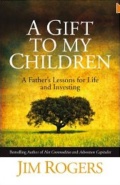
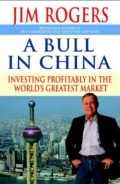
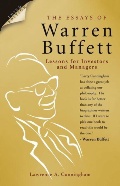
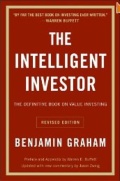
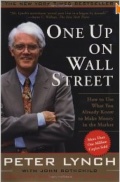







AL833D
i have 2 of this books!
a)A Gift to My Children
b)The Intelligent Investor (take me 2 years to finish read, haha)
2012-05-07 22:26